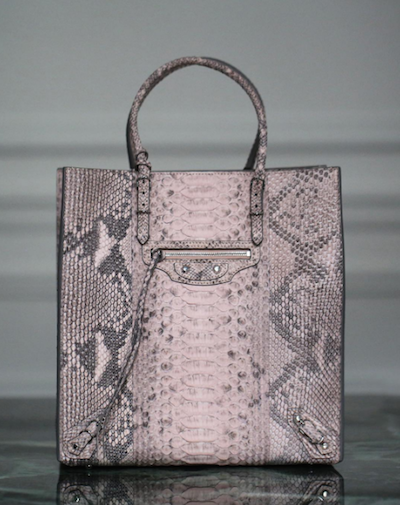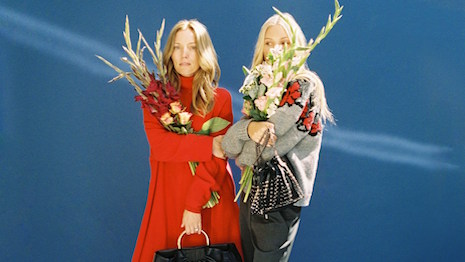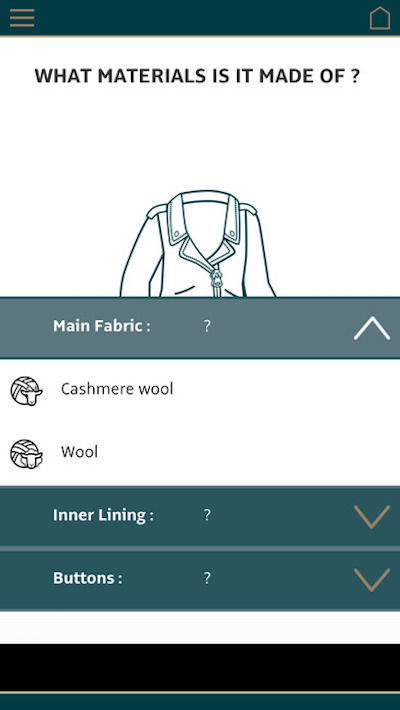Disruptive factors and a climate of uncertainty have put pressure on the retail environment, but the brands that will weather the storm best are those embracing purposeful business models.
In “Shopping with a Purpose: The New Retail Revolution,” Positive Luxury outlines how luxury brands fit into the purposeful business movement, how consumer behavior has pushed the model to the mainstream and why purpose-based companies will be best positioned to survive. Although brands in the luxury ecosystem are not always known to be cutting edge, they are traditionally seen as “the vanguard of inspirational leadership,” a characteristic that may spearhead the category’s move toward sustainability.
“There are so many imperatives for brands to become purpose-led,” said Valerie Keller, global leader at EY Beacon Institute. “The sweeping changes in consumer attitudes, the arrival into the market – and job market – of new generations with new demands, the increasing pressure on natural resources and the enormous complexity of innovation in an ‘always on’ world are increasing the importance of purpose for leading edge businesses.
“The heartbeat of what some are calling a new ‘purpose economy’ is about optimizing for the meaning and fulfillment which employees, customers and stakeholders feel in every experience with the company,” she said. “The companies that can do this will be leaders in this exciting new era.
“It is hard work. But it is well worth it. All the evidence points to one conclusion – that purpose led companies that have an eye on the long term despite super short-term cycles, that nurture stakeholder relationships and are seen to contribute something to humanity are best placed to survive and thrive in a world of near perpetual revolution.
“As everything changes, it’s those who have a north star who will navigate the disruption, connect with the citizen consumer and thrive,” she said.
Positive Luxury’s Shopping with a Purpose: The New Retail Revolution was sponsored by EY Beacon Institute. EY Beacon Institute is a community of executives, entrepreneurs and luminaries working to redefine what a successful company is in the 21st century.
Sustainable futures
Never before has the retail environment been impacted by so many disruptive factors at once. In a relatively short time frame, luxury brands have had to navigate new consumer demographics, emerging markets, technological advancements and where to invest internally, whether that means software or store design.
In addition to these factors, consumer behavior has changed to bring forth new desires, needs and expectations.
With so much influx, the brands that respond by leading with purposeful efforts, such as transparency and sustainability, nurturing consumer relationships and giving back to the community will be positioned to survive.

Balenciaga Papier Zip Around in python (see story).
Looking toward the future, Positive Luxury’s report suggests that retail in 2020 will be dominated by purpose-led retailers and brands. Those that are purpose-led will establish connected flagships designed around product philosophy in addition to product curation based on brand identity.
“Retailers and brands have looked at technology with deep suspicion and reluctance – for bricks-and-mortar stores, online shopping can feel like an existential threat,” Ms. Keller said. “A staggering 40 percent of high-end brands still do not sell via the web.
“Historically, luxury companies have been hesitant to make the online leap for fear which is understandable since it could signify the contrary to a luxury retail experience – lacking intimacy, personal touches – and especially that holy grail of exclusivity,” she said.
“But stores and luxury brands are starting to use tech in bold, innovative and luxurious ways to create experiences – mixing and matching real world and tech. Consumer brands are following several principles as it relates to changing technology: mobile first, getting phygital (physical + digital), creating and curating content, leveraging data and fast delivery omnichannel.”
All this technology innovations of the ‘4th Industrial Revolution’ could make it seem that it’s all about the tech disruption. But smart retailers realize something we know from our work with purposeful companies: this is the age of the human. The consumer is citizen and the employee is more than “staff”. Engaged employees who find meaning in their work can make the greatest impact.
Purpose-led business models will evolve out of 2016 consumers’ increasing desire for trusted brands.
In its research, Positive Luxury found that 45 percent of consumers say their trust has increased if they feel a brand has contributed to the greater good. Also, 80 percent of consumers believe brands can improve the community while also turning a profit.
Increasingly, business are seeing sustainability as the way forward to connect with consumers and generate value. In the last year alone, sales of consumer goods tied to a sustainability commitment have risen by 4 percent, while those without have grown less than 1 percent.
Sustainability is no longer viewed as a “brake on innovation,” but is being led by innovative thinkers instead. French conglomerate Kering Group, which owns Gucci, Stella McCartney and Bottega Veneta, among other houses, is one such example of an innovator in the luxury space.
So much so, that Kering is committed to educating the next generation of fashion designers to lead with sustainability practices.
Recently, Kering and Parsons School of Design announced a new course to measure the environmental impact of designs. The course will leverage the Kering x Parsons: Environmental Profit & Loss program and use the My EP&L mobile application as a measurement tool for students to better understand the environmental impact of their designs (see story).
In addition to a sustainable retail approach and philosophy, brands are increasingly aware that their positive impact on society and the environment will result in talent recruitment.
Research suggests that if a company is known for doing good within its community or environmentally, qualified talent is more likely to apply and stay put for longer periods of time. Today’s employees are looking to be a part of something larger, not only a paycheck.
Put your dollars where the cause is
In addition to culling consumers more interested in the greater good instead of “attaining status from a price tag,” purpose-led businesses are also attracting investors.
Forty-six percent of CEOs agree that climate change and the scarcity of resources will transform their business, according to a report by Positive Luxury published in January.
Positive Luxury’s “2016 Predictions for the Luxury Industry: Sustainability and Innovation” report examined impactful events from 2015 to forecast how these world happenings will impact luxury going forward into 2016. Sustainability is proving itself more than just a fad, with consumers becoming increasingly aware and conscious of how and what they purchase, and as a result investors are putting more weight into sustainable business models.
During its research for the report, Positive Luxury found that consumers are aware of the power they possess and know they can make a difference. Beyond being vocal about social and environmental causes, consumer power is also based on the product purchases they make.
Likewise, C-suite executives have found that to keep brand value and continue growth, an investment in sustainability performance and practices is a must. Also, given transparency’s importance in the minds of consumers, the way in which brands communicate their positive impact has also grown (see story).
“The fashion industry has been slow to embrace transparency – but it is starting to open up. Surviving – let alone thriving – in today’s volatile, disruptive environment is hard,” EY Beacon Institute’s Ms. Keller said. “Retail especially faces uncertain times, struggling with the impact and opportunity of new technology, new consumers and new ethical demands.
“The research indicates the industry is making good progress and this is wise since the citizen consumer is also more of an activist to vote with their wallet: Mintel research found that 51 percent of consumers believe they should boycott retailers that act unethically.”
from Jewelry – Luxury Daily https://www.luxurydaily.com/purpose-based-philosophies-will-lead-luxury-brands-through-volatile-times/
via Your #1 Source to Finding Luxury & Designer Goods, Handbags & Clothes at or Below Wholesale: Click Here.


No comments:
Post a Comment